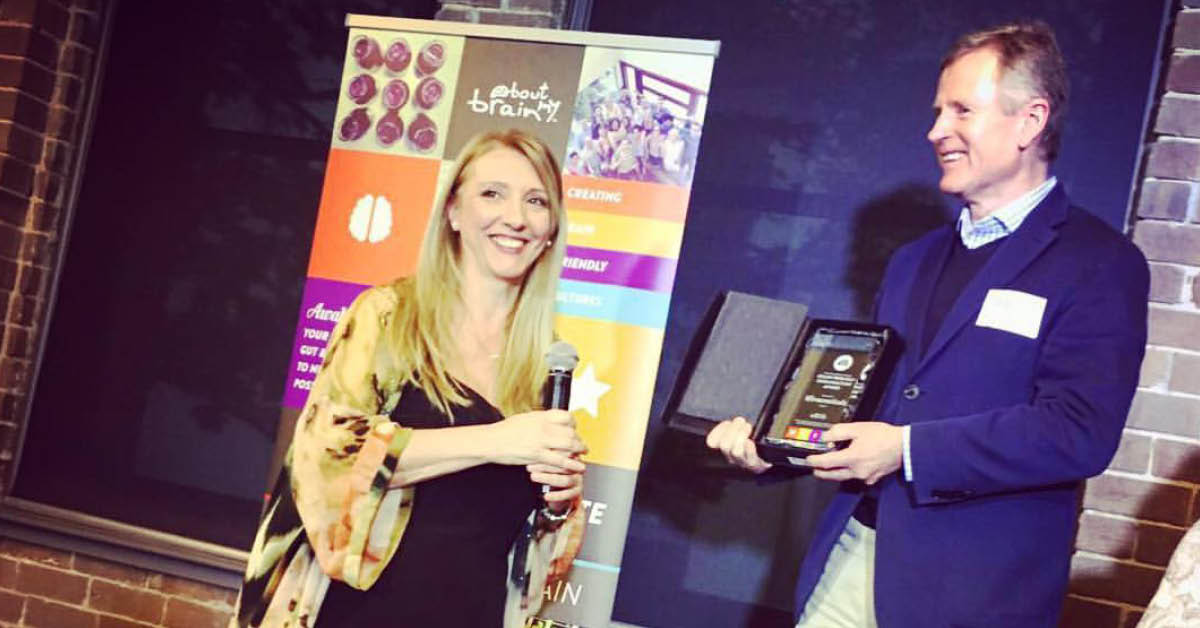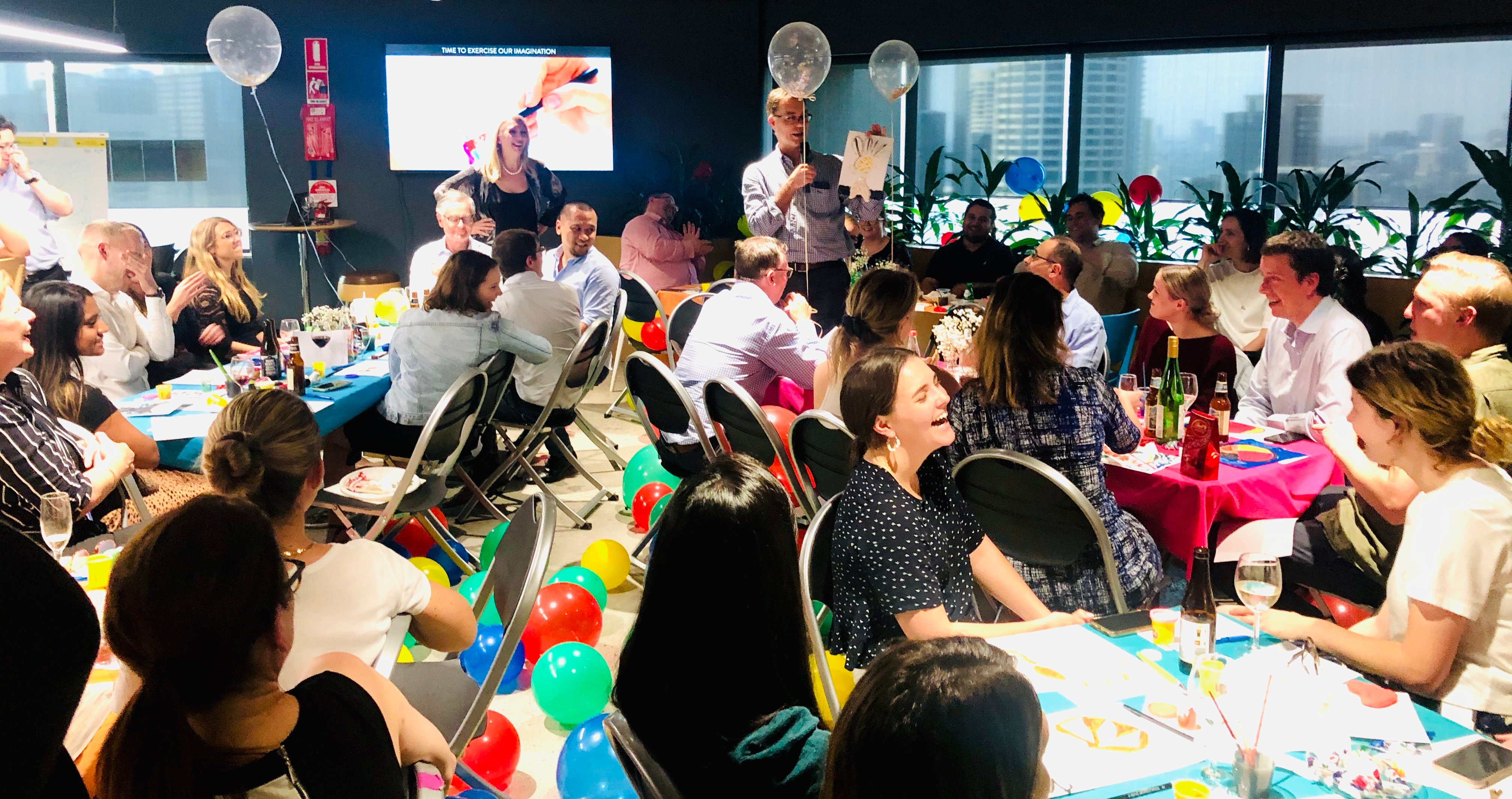If Your Staff Is Not Talking About Creativity, You Are Falling Behind
Creativity often gets lost when we focus on all the tasks we need to accomplish each day. In this rush to “do” things, we are losing out on so much, including imagination and creativity. Without fostering these abilities, how could we have soaring cathedrals and beautiful art? How could we have innovative companies that are changing the course of the future through technology, research and determination?
When we lose creativity, we are losing the part of a business or organisation that can grow and adapt to change, and it means we can find ourselves at a dead-end, devoid of talent and without a route to success.
When you ask people how creative they are at work, what do people usually say? The answer probably depends on the profession the person has. An artist or musician might say they are very creative, but a CEO or manager might just stare at you and shrug.
Some jobs simply don’t leave much room or leeway for creativity. The list of tasks to complete each day might read like a check-list of sorts, and there isn’t an opportunity to expand or even improve on this check-list.
What happens when an organisation becomes infatuated with checking the boxes on these lists? Creativity is one of the first things to be forgotten, but this is likely to become a fatal flaw for the company, slowly festering until the problem cannot be ignored any longer.
Without creative juices flowing between staff members, performance and innovation will start to melt away, and the most talented and creative staff members will probably also disappear, off to greener pastures where their brains are valuable and useful.
Creativity Is A Skill Needed Now AND In The Future
According to the Future of Jobs Survey 2018, creativity is a skill which is already high in demand, and creativity is projected to be even more necessary by 2022. Businesses have had to adjust their expectations regarding workforce skills which are now needed. Leaders are seeking employees who can develop new ideas and find creative solutions to problems their organisations may face.1
People have been using their creativity to solve problems for eons, from developing new weapons to discovering uses for medicinal plants and herbs. Why do so many leaders and managers seem reluctant to encourage creativity in the workplace?
- Fear or uncertainty. While many would be loathe to admit it, sometimes fear and uncertainty can drive us to avoid new things. Although creativity in the workplace certainly isn’t new, giving employees time to think creatively and a proper space to really explore this part of their brains might be. Leaders may also feel uncertain about their own positions. After all, if someone else has a better idea, what’s keeping them from leading, too? This kind of thinking can be toxic and can prevent new ideas from ever seeing the light of day.
- Habit. Sometimes, it’s simply habit which is holding us back from new ideas. Lots of people enjoy checking items off the list for the day, and they don’t necessarily want to engage their brains in novel thought processes.
- Lack of diversity. Diversity brings so many perspectives into a situation. The brains of each of us are vastly different because of our hopes, dreams, and life experiences. We each have something to contribute to help solve a myriad of problems, but only if we are present. Organisations which lack diversity are also missing out on creativity.
You can’t use up creativity.
The more you use, the more you have.Maya Angelou
Encouraging Employees To Be The
Best Versions Of Themselves
When companies encourage people to be the best version of themselves possible, they are encouraging and supporting creativity. Teaching others the value of mindfulness, laughter and humour can make a huge difference in the office. Leaders should support their employees in their quests to improve their brains by allowing them to do creative things, both in and out of the workplace.
It isn’t enough to merely open your mind to being creative, it’s important to practice being creative. Consider it a “use it or lose it” skill, and leaders should recognise how difficult it is to be creative when the people who work for them are bogged down with menial tasks which chain them to desks inside for hours at a time.
McCabe Curwood, an Australian law firm which values core principles such as courage, integrity and excellence, recently hosted an event called ‘Leading with Laughter’. I was very excited to be the keynote speaker and facilitate this workshop. It was encouraging to see the all attendees improve their creativity by understanding the importance of taking time for themselves and what mindfulness can truly do for the brain.
It is always a joy to help others learn a new way of thinking which can stimulate and fan the flames of creativity. Leaders of the future must be well-practised in using their creative brains, but so many organisations are slow to recognise the value of creativity. McCabe Curwood is seeking to create an environment where people can grow into leadership positions while becoming the best versions of themselves.
Read more about their vision and how supporting a brain-friendly culture could boost your organisation.
The Value Of Investing In Creativity
As we start 2020 and leave an entire decade behind, we should reflect on the past and focus on the goals for the future. Science is now telling us how important creativity is in leadership, but will we choose to listen? Will we support leaders as they endeavor to take more risks and embrace creative thoughts?
When we invest in the development of creativity, we are investing in the possibility of the future. Creative solutions are required for some of the most pressing issues humanity faces, from global economics to the effects of climate change. While every organisation has different needs and requirements, a common thread between all of us is that creativity is now sought after and desirable in our workers, from leaders on down the ladder.
Creativity Labs, such as the event at McCabe Curwood, can offer a chance to make changes which can usher in a new way of thinking. The rest of the world is demanding talent with a creative brain--are you keeping up?
Citation:
1. World Economic Forum. The Future of Jobs Report 2018. World Economic Forum, 2018.
- i4 Neuroleader (353)
- Leadership & Culture (336)
- Brain Health & Wellbeing (206)
- Innovation (97)
- Performance (85)
- Our News (79)
- Collaboration (68)
- Agility (53)
- Practitioner Stories (44)
- In The Press (36)
- Make Me A Leader (33)
- Balance (31)
- Integration (30)
- Imagination (29)
- Awareness (23)
- Brain-Friendly Channel (22)
- Brain-Friendly Leadership (22)
- Communication (22)
- Curiosity (21)
- Inspiration (19)
- Intuition (19)
- Attitude (17)
- Courage (16)
- Adaptability (14)
- Case Studies (14)
- Drive (14)
- Generosity (13)
- Ethics (9)
- Mental Readiness (9)
- Influence (8)
- Retreat (8)
- Brain-Friendly Leadership (1)
- Oracle Cards (1)
- 1 November 2025 (2)
- 1 September 2025 (3)
- 1 August 2025 (5)
- 1 July 2025 (5)
- 1 June 2025 (2)
- 1 April 2025 (1)
- 1 March 2025 (8)
- 1 February 2025 (3)
- 1 September 2024 (4)
- 1 July 2024 (2)
- 1 June 2024 (6)
- 1 May 2024 (2)
- 1 April 2024 (3)
- 1 March 2024 (1)
- 1 November 2023 (1)
- 1 August 2023 (1)
- 1 July 2023 (2)
- 1 June 2023 (2)
- 1 May 2023 (4)
- 1 April 2023 (2)
- 1 March 2023 (7)
- 1 February 2023 (4)
- 1 January 2023 (1)
- 1 September 2022 (1)
- 1 May 2022 (3)
- 1 April 2022 (1)
- 1 March 2022 (5)
- 1 February 2022 (4)
- 1 January 2022 (4)
- 1 December 2021 (2)
- 1 November 2021 (4)
- 1 October 2021 (3)
- 1 September 2021 (6)
- 1 August 2021 (1)
- 1 April 2021 (1)
- 1 December 2020 (2)
- 1 November 2020 (1)
- 1 September 2020 (1)
- 1 August 2020 (1)
- 1 July 2020 (3)
- 1 June 2020 (4)
- 1 May 2020 (3)
- 1 April 2020 (4)
- 1 March 2020 (6)
- 1 February 2020 (4)
- 1 January 2020 (2)
- 1 December 2019 (3)
- 1 November 2019 (3)
- 1 October 2019 (5)
- 1 September 2019 (4)
- 1 August 2019 (4)
- 1 July 2019 (4)
- 1 June 2019 (5)
- 1 May 2019 (9)
- 1 April 2019 (9)
- 1 March 2019 (8)
- 1 February 2019 (7)
- 1 January 2019 (8)
- 1 December 2018 (5)
- 1 November 2018 (10)
- 1 October 2018 (16)
- 1 September 2018 (9)
- 1 August 2018 (10)
- 1 July 2018 (9)
- 1 June 2018 (8)
- 1 May 2018 (9)
- 1 April 2018 (9)
- 1 March 2018 (9)
- 1 February 2018 (8)
- 1 January 2018 (8)
- 1 December 2017 (6)
- 1 November 2017 (9)
- 1 October 2017 (9)
- 1 September 2017 (8)
- 1 August 2017 (10)
- 1 July 2017 (8)
- 1 June 2017 (8)
- 1 May 2017 (9)
- 1 April 2017 (8)
- 1 March 2017 (6)
- 1 January 2017 (3)
- 1 December 2016 (4)
- 1 November 2016 (5)
- 1 October 2016 (4)
- 1 September 2016 (2)
- 1 August 2016 (4)
- 1 July 2016 (4)
- 1 June 2016 (2)
- 1 May 2016 (3)
- 1 April 2016 (3)
- 1 March 2016 (7)
- 1 February 2016 (2)
- 1 January 2016 (5)
- 1 December 2015 (2)
- 1 November 2015 (2)
- 1 October 2015 (4)
- 1 September 2015 (2)
- 1 August 2015 (2)
- 1 July 2015 (1)
- 1 June 2015 (3)
- 1 May 2015 (4)
- 1 April 2015 (5)
- 1 March 2015 (3)
- 1 February 2015 (3)
- 1 January 2015 (3)
- 1 December 2014 (3)
- 1 November 2014 (3)
- 1 October 2014 (3)
- 1 September 2014 (5)
- 1 August 2014 (4)
- 1 July 2014 (5)
- 1 June 2014 (3)
- 1 May 2014 (1)
- 1 March 2014 (1)
- 1 December 2013 (2)
- 1 November 2013 (1)
- 1 July 2013 (1)
- 1 June 2013 (1)
- 1 May 2013 (3)
- 1 April 2013 (1)
- 1 March 2013 (2)
- 1 February 2013 (1)
- 1 January 2013 (2)
- 1 November 2012 (1)
- 1 October 2012 (1)
- 1 September 2012 (1)
- 1 August 2012 (2)
- 1 July 2012 (1)
- 1 June 2012 (1)
- 1 May 2012 (2)
- 1 April 2012 (1)
- 1 February 2012 (1)
- 1 January 2012 (1)
- 1 November 2011 (1)
- 1 October 2011 (3)
- 1 September 2011 (2)
- 1 July 2011 (1)
- 1 June 2011 (1)
- 1 May 2011 (1)
- 1 April 2011 (1)
- 1 March 2011 (1)
- 1 February 2011 (2)
- 1 January 2011 (4)
- 1 December 2010 (4)
- 1 November 2010 (3)
- 1 October 2010 (5)
- 1 September 2010 (4)
- 1 August 2010 (4)
- 1 July 2010 (3)
- 1 June 2010 (4)
- 1 May 2010 (7)
- 1 April 2010 (5)
Subscribe by email
You May Also Like
These Related Stories

Is Your Salon “Brain Friendly”?

3 Ways to Increase Your Motivation and Drive




No Comments Yet
Let us know what you think